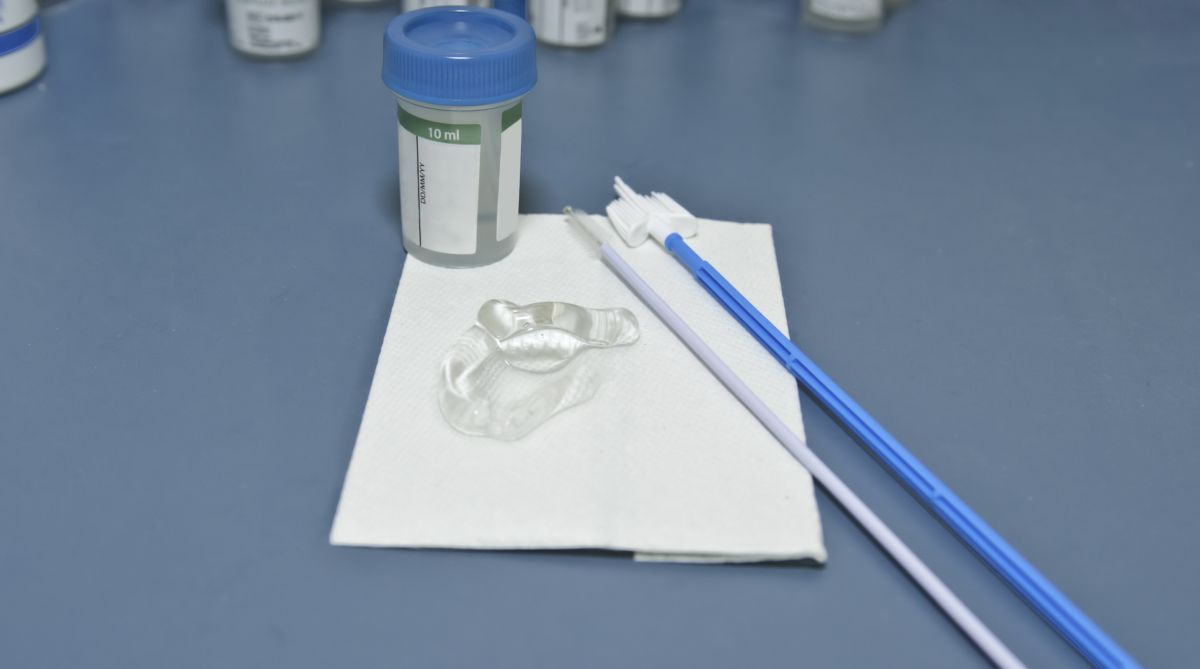Researchers develop more accurate method for cervical cancer screening
Japanese researchers have developed a more accurate method that comes with high diagnostic power to screen against cervical cancer from mucus samples.
Generally conducted during a pelvic examination, the test identifies abnormal cervical changes that may suggest that the cancer is likely to develop or has already developed

Pap smear kit to test for papoloma virus and cervical cancer. (Photo: Getty Images)
A Pap smear test, also known as a Papanicolaou test/ Liquid Based Cytology (LBC), is a screening procedure to detect cervical cancer in women, which is caused by a sexually transmitted virus called ‘Human Papillomavirus’ (HPV). It involves collecting cells from your cervix (lower narrower portion of the uterus).
According to research by the National Institute of Cancer Prevention and Research, a woman dies of cervical cancer every eight minutes in India.The nation alone, accounts for one-fourth of cervical cancer cases globally, and for 17 per cent of all cancer related deaths among women aged between 30 to 69 years. It is also estimated that 1 in 53 Indian women are detected with cervical cancer during their lifetime compared to 1 in 100 women in more developed regions of the world.
A Pap smear can detect precancerous lesions (abnormal cells that are associated with an increased risk of developing into cancer), which allow the implementation of preventive treatment. In addition, it can also help spot any other infections that may appear in the cervical or vaginal area.Besides early detection, getting the test every few years cuts down on unnecessary panic resulting from abnormal results.
Advertisement
Generally conducted during a pelvic examination, the test identifies abnormal cervical changes that may suggest that the cancer is likely to develop or has already developed. In many cases, it is possible to identify and treat it before it spreads beyond the cervix. Once a woman becomes sexually active, persistent infections can lead to precancerous changes that can be fatal if left undetected. Moreover, symptoms are rare in its early stages and therefore, being aware of the disease, causes and precautionary measures, such as getting screened or tested can help reduce the risk of developing the disease.
READ | World Cancer Day: WHO gives call to eliminate cervical cancer
Smoking, poor nutrition, a weakened immunity and multiple pregnancies are some common causes of cervical cancer. It is thus important to know signs and symptoms such as weight loss, fatigue, back pain, leg pain or swelling, pain in abdomen, post- coital bleeding or spotting, foul smelling discharge.
The American College of Obstetricians and Gynaecologists suggests the following:
• Those younger than 21 do not need to get Pap smears
• Those aged 21 to 29 should get a Pap smear every three years
• Those aged 30 to 65 should get a Pap smear every three years,or a Pap smear plus an HPV test every five years.
• Those older than 65 can stop Pap smear tests only if they’ve had positive test results for several years
Avoid during menstrual cycle: Blood cells that are shed during your period may affect the accuracy of the test result. Therefore, remember to take an appointment 2 weeks after the start of your period.
Be relaxed and speak up if you feel pain: You may feel some discomfort or pain during the pap test process. Try to relax when the speculum is inserted, but if you feel pain, inform your doctor or nurse immediately.
Get tested every three years: It is very important to get a pap smear every three years even if you have been vaccinated. Vaccines do not protect against all cancer-causing HPV (Human Papilloma Virus) sub-types, and about 30% cervical cancer cases are caused by HPV.
Risk of cervical cancer increases with age: Women who have had sexual intercourse and have never had a Pap smear should get screened despite their age, as it internally helps in tracking your health.
Make it a habit: Even if you feel healthy and do not experience its symptoms, make it a habit to get a pap smear once every 3 years to identify changes in the cervix, before abnormal cervical cells become cancerous.
Regular pap smears reduce the risk of cervical cancer. However, if you do develop the disease, the chances of curing it if detected early are high. While the Pap smear might be a bit uncomfortable, it only lasts a few minutes, which can save your life.
(Dr Dimpy Irani, Honorary Gynecologist and Obstetrician, Saifee Hospital)
Advertisement